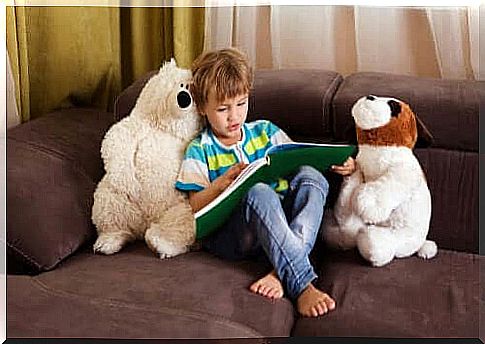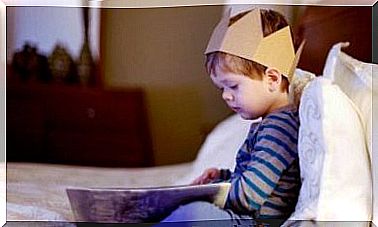7 Strategies To Improve Reading Comprehension In Children

“Although children begin to acquire knowledge about reading in day care, children only really learn about it when they start school. Every student will have more or less developed skills, rhythms and needs. That is why teachers need to learn to respond to them all. ” If you are wondering why your child is doing poorly in school or having problems with certain topics, it is important to check his or her literacy. Fortunately , one can reinforce and improve reading comprehension in children at home with the help of teachers.
With the right strategies, you can learn to build concepts and navigate through the different reading levels. For example, you can help your child with literal, concluding, and critical reading.
How to improve reading comprehension in children
1. Establish connections and relationships
When reading with your child, show him or her that the concepts have a connection to real life. One of the best tricks to remember what you read and make it valuable is actually to see that it has a usage function.
First of all, ask your child to identify these conditions verbally. Next, your child can do it quietly or in a more fun and independent way.
2. Ask questions to understand the text
If you ask your child questions about the information in the text, teach him or her to search for clues. Motivate your child to interact with the text and choose information that is relevant to him or her.
One of the characteristics of a good reader is the ability to ask questions and find the answers. Your child can use a text or possibly other sources.
3. Create mental images that can help improve reading comprehension in children
Texts are not just papers filled with letters. These are universes to explore and explore. Get your child to imagine and recreate the stories using his or her imagination so he or she can remember it better.
A good resource for this is to ask your child to draw the context and the concepts the way he or she sees them. Your child will not only read through his eyes, but will remember it with all five senses.
4. Make hypotheses about what is being read to improve reading comprehension in children
The literary level of the text is the information that is on the pages. You can research it through exact questions and answers. However, there is another level of understanding that invites children to think about the consequences of a situation.
On the other hand, they can think about the causes of a problem. For example, ask your child what he or she thinks will happen next in the book he or she reads.
5. Identify the primary ideas and elements
It is important for children to be able to identify the primary ideas about what they are reading. That is, the facts and the characters that directly affect the development of the story.
In that regard , it is good to give them different genres. In addition to non-fiction, give your child fiction and fairy tales. In this way, your child learns to identify structural markers, such as titles, bold letters, italics, pictures, and context tables.
Other tips to improve reading skills in children
6. Reread parts they do not understand
You may not understand everything the first time you read something. Often one will have to read the same part a few times to really understand the meaning.
Each time you read, you also learn more details that help you understand the passage. In fact, sometimes it’s better to do it in silence, and other times it’s better to read aloud.
7. Check for unknown words
It is not possible to understand a text completely if there are many words that one does not understand. Furthermore , looking up definitions and using contextual cues can help improve children’s vocabulary. Dedicated readers also have the opportunity to play with definitions in their own writing.
Finally, as you can see after reading this article, strategies to improve the reading skills of children strengthen all children’s communicative and cognitive skills. You can actually help kids become more successful in school. Furthermore, they learn to develop critical thinking as they read.









